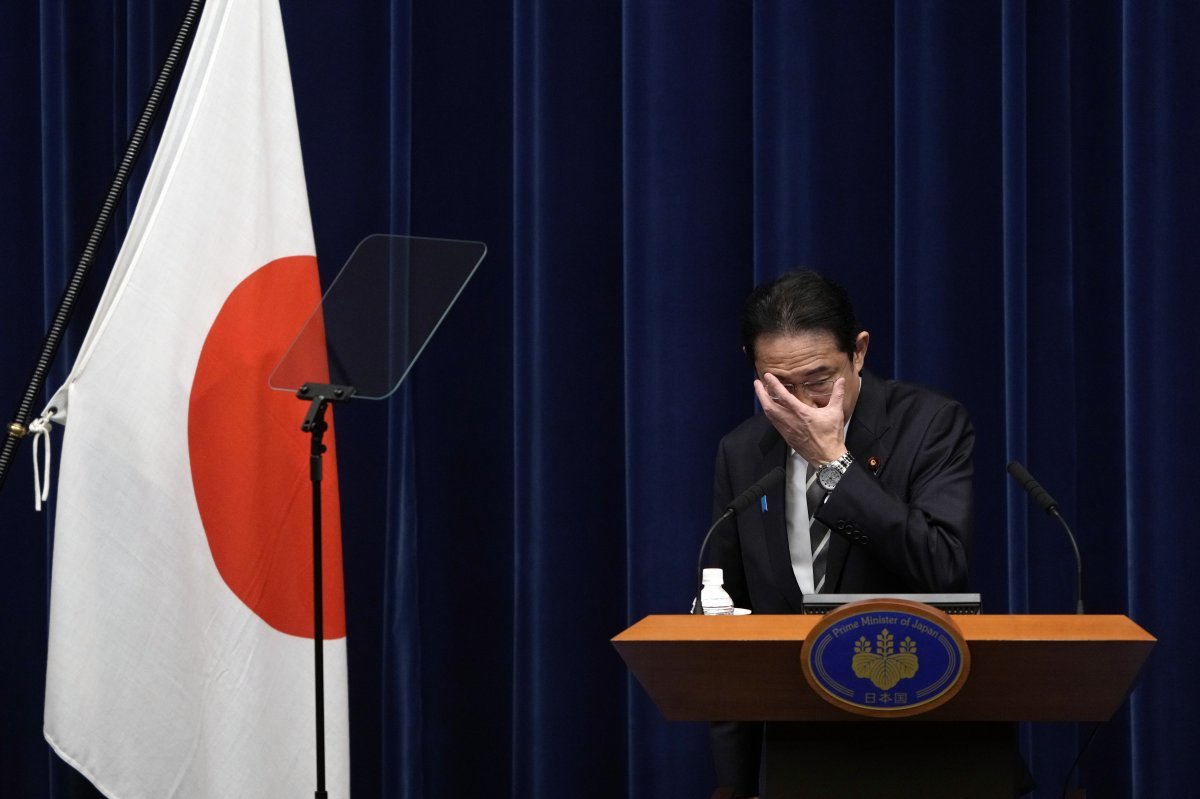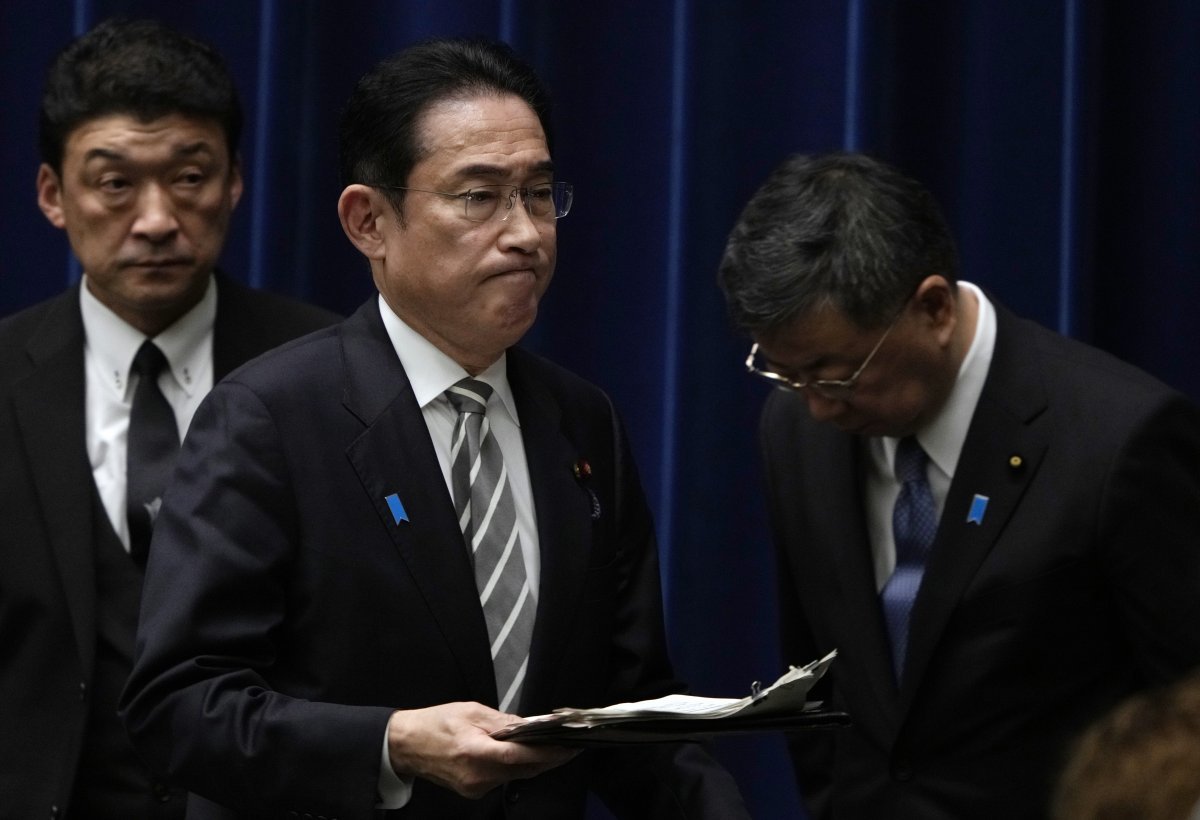In the aftermath of the recent controversy in Japan over the alleged slush fund creation of a major faction of the Liberal Democratic Party, the ‘factional politics’ that has lasted for over 60 years in Japanese politics is showing signs of collapsing. In recent days, more than half of the major factions of the ruling Liberal Democratic Party have declared dissolution, and the Japanese political landscape is expected to be greatly shaken.
Japanese public broadcaster NHK reported on the 19th, “The Abe faction, the largest faction of the Liberal Democratic Party, which was at the center of the slush fund scandal, decided on this day to disband the faction.” The Abe faction is a powerful faction that produced as many as four prime ministers in the 2000s alone, including Yoshiro Mori, Junichiro Koizumi, Shinzo Abe, and Yasuo Fukuda. There are still 98 members of the National Assembly.
At the end of last year, charges were revealed that members of former Prime Minister Shinzo Abe’s faction, including the Abe faction, had embezzled some of the political funds raised from supporters’ associations to create slush funds and distributed them to their members, causing a great shock to Japanese society. The special department of the Tokyo District Public Prosecutors’ Office, which launched a large-scale investigation, announced on this day, “We are indicting the accounting officers of half of the six major factions in the Liberal Democratic Party, the Abe faction, the Kishida faction, and the Nikai faction, on charges of violating the political fund law.”
 View largerPrime Minister Fumio Kishida holds a press conference in Tokyo on the 13th of last month after suspicions of illegal slush funds from Japan’s ruling Liberal Democratic Party arose. The next day, Prime Minister Kishida dismissed four ministers involved in the slush fund suspicions. Tokyo = Myth Newsis
View largerPrime Minister Fumio Kishida holds a press conference in Tokyo on the 13th of last month after suspicions of illegal slush funds from Japan’s ruling Liberal Democratic Party arose. The next day, Prime Minister Kishida dismissed four ministers involved in the slush fund suspicions. Tokyo = Myth NewsisPrime Minister Fumio Kishida also announced on the 18th, “We will consider disbanding,” and on the morning of the next day, he announced, “To restore political trust, we will disband the Kishida faction.” After the Abe faction’s suspicion of creating a slush fund became known, it was revealed that the Kishida faction had not recorded about 30 million yen (approximately 290 million won) over three years in the report. It is interpreted that Prime Minister Kishida attempted to change the situation as public criticism grew.
The Kishida faction, of which Prime Minister Kishida served as chairman, is the fourth faction within the Liberal Democratic Party and has 46 members. It was established in 1957 and has the longest history among the major factions within the Liberal Democratic Party. The Asahi Shimbun reported that Prime Minister Kishida’s announcement of dissolution was met with criticism from the Aso faction (56 members of the National Assembly) and the Motegi faction (53 members), which supported the Kishida administration, calling it ‘irresponsible’. After the prime minister’s announcement, the fifth faction, the Nikai faction (38 members), also declared disbandment.
 View largerPublic criticism is growing as suspicions spread that the Abe faction, the largest faction within Japan’s ruling Liberal Democratic Party, has illegally created slush funds. Accordingly, Prime Minister Fumio Kishida held a press conference on the 13th to explain his follow-up personnel policy and the direction of future state administration and attempted to evolve. Tokyo = Myth Newsis
View largerPublic criticism is growing as suspicions spread that the Abe faction, the largest faction within Japan’s ruling Liberal Democratic Party, has illegally created slush funds. Accordingly, Prime Minister Fumio Kishida held a press conference on the 13th to explain his follow-up personnel policy and the direction of future state administration and attempted to evolve. Tokyo = Myth NewsisMeanwhile, on this day, the Tokyo District Prosecutors’ Office’s special department indicted the accounting managers of major factions of the Liberal Democratic Party, but did not indict the chairman or secretary-general of the influential factions. Local media reported, “It has become difficult for the prosecution to avoid criticism that it is trying to end the investigation with a rash move.”
Source: Donga
Mark Jones is a world traveler and journalist for News Rebeat. With a curious mind and a love of adventure, Mark brings a unique perspective to the latest global events and provides in-depth and thought-provoking coverage of the world at large.